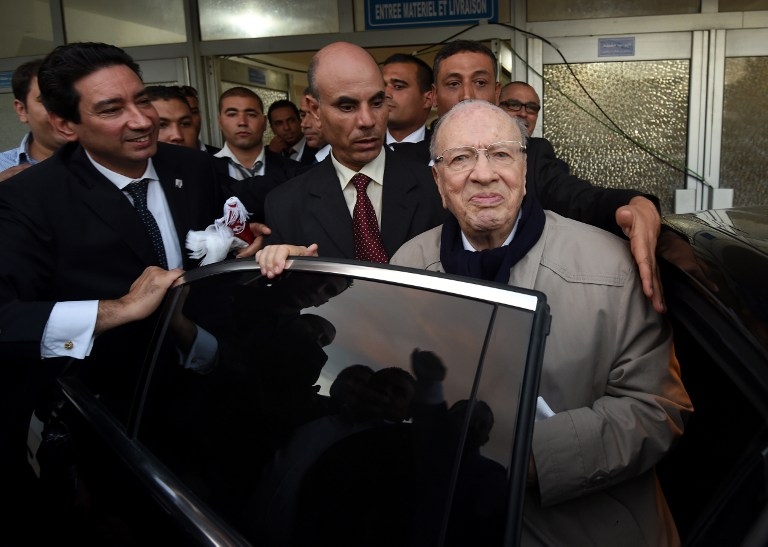Ahead of Tunisian elections, rumours fly about frontrunner's health

TUNIS - With less than a week until Tunisians vote for a new head of state in the country’s first genuinely free presidential elections, tempers are flaring and insults are flying. But there is a surprisingly polite silence among politicians on a key issue that many Tunisian voters discuss.
Beji Caid Essebsi, the centre-right candidate of Nidaa Tounes (the Appeal of Tunisia) who is leading the polls is 88 years old. There are rumours that he has poor health which is being concealed.
At his final rally in Tunis this weekend, he felt obliged to deny them. An adoring crowd greeted him ecstatically with red banners, white balloons and rhythmic chanting as he strode vigorously to the podium. He looked self-assured and confident.
They cheered when he told them, "People are raising doubts about my capacities and my age and some have even gone as far as to spread rumours about my health, but thank God you can see that I'm fine. While I forgive these critics, I don't think they deserve any respect intellectually or morally".
Essebsi is planning several visits to cities outside the capital in the final days of the campaign in a further bid to demonstrate his energy.
Doubts about Essebsi’s capacity first emerged from a political source in September. Omar S’habou, a senior member of Nidaa Tounes, wrote a letter to Essebsi and other members of the party executive, urging him to stand down as a candidate.
The letter, which was leaked to a local media outlet, claimed Essebsi was a figure-head who was being pushed around by rivals in the party leadership who were close to Zine al-Abidine Ben Ali, the dictator ousted in 2011. This was partly because of Essebsi’s poor health, the letter went on. It urged him to publish a full medical bulletin on his health condition.
The letter diplomatically reminded Essebsi that S’habou had made the same request to the second most popular candidate for the presidency, Moncef Marzouki, head of the Congress for the Republic who is the current interim president. Marzouki is 69.
S’habou was promptly dismissed from the party by Nidaa Tounes. Officials close to Essebsi suggested he was disgruntled at not being put on the party’s list of candidates for the parliamentary polls.
No other politician has dared to attack Essebsi for his age or alleged health problems, though rumours extend from suggestions that he is suffering from some degree of renal failure which may require dialysis for his kidneys to general tiredness that limits his working day to a few hours.
Marzouki, who is running second in the opinion polls, attacked Essebsi last week in strong personal terms. He called him “haughty and narcissistic”. He also said an Essebsi victory next Sunday would mean a return to dictatorship in a new guise because “someone who was immersed in dictatorship cannot play the role of a democrat”. Essebsi was head of parliament in Ben Ali’s party at the start of the dictator’s rule.
Essebsi’s spokesman, Lazhar Akremi, replied witheringly: “Tunisia is a novel and Marzouki is nothing but a comma”.
In his campaign appearances, Marzouki has not made an issue of Essebsi’s age or health, but a close aide told MEE that this may change if no candidate gets over half the vote on Sunday and the contest goes into a run-off between the top two. “In the first round, we’re focusing on the risk of a return to the RCD days, but focusing on Essebsi as a person will be part of our strategy in the second round,” said Tarek Kahlaoui, director of the Tunisian Institute for Strategic Studies and a senior member of Marzouki’s campaign staff. The RCD, now banned, was Ben Ali’s party.
“We haven’t called for publication of Essebsi’s medical file but we might want to do that in the second round. Usually the talk is of dialysis. He apparently does it outside the country, maybe in Paris,” he said.
Stay informed with MEE's newsletters
Sign up to get the latest alerts, insights and analysis, starting with Turkey Unpacked
Middle East Eye delivers independent and unrivalled coverage and analysis of the Middle East, North Africa and beyond. To learn more about republishing this content and the associated fees, please fill out this form. More about MEE can be found here.




